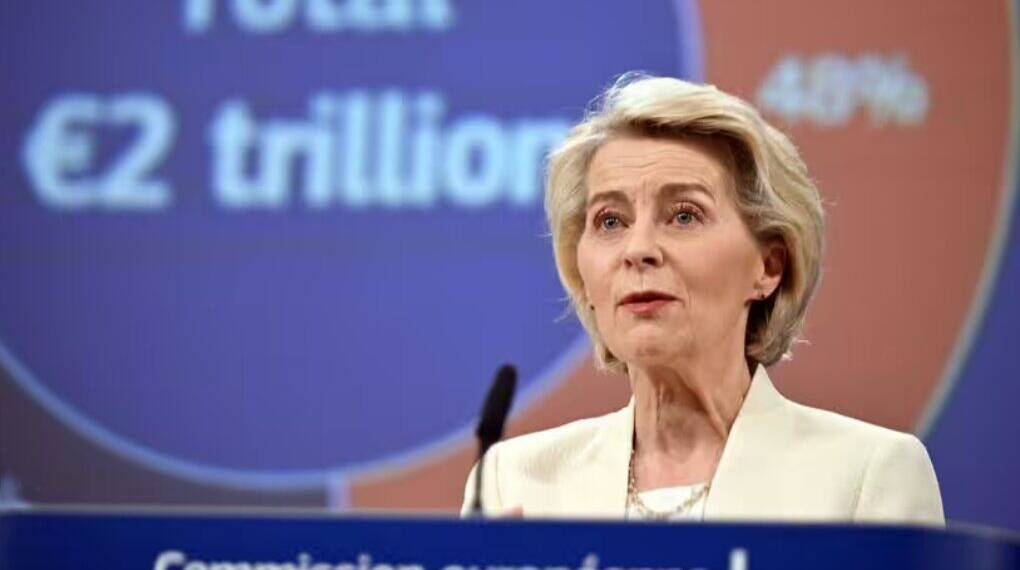Across Europe, a silent war over speech and narrative control is unfolding. The European Union, which has long projected itself as a champion of democracy, freedom, and human rights, is now being accused of waging an information crackdown—one that many critics say threatens the very essence of free expression.
At the heart of this storm lies the EU’s growing obsession with what it calls “hybrid information warfare.” Under this banner, Brussels has started tightening control over social media platforms such as YouTube, Facebook, and X (formerly Twitter)—ostensibly to curb disinformation and protect citizens from foreign influence. But critics argue that what’s being targeted isn’t falsehoods or foreign propaganda; it’s dissenting voices and alternative media platforms that challenge the EU’s policies.
The EU’s New Digital Crackdown
In recent years, the EU has introduced a series of laws under the Digital Services Act (DSA) and Digital Markets Act (DMA), claiming to ensure transparency and accountability online. These regulations compel major tech platforms to remove or label content deemed as “misleading” or “manipulative.”
However, these laws are increasingly being used to target channels that hold critical or anti-establishment opinions—especially those accused of being “pro-Russia” or “anti-EU.”
According to reports circulating across independent outlets, YouTube channels like TFI Global, along with other alternative media voices, are facing mounting pressure, demonetization, or even the risk of being banned under the pretext of spreading “disinformation.”
The question arises: Who decides what counts as disinformation? And more importantly, who benefits from silencing it?
The Rise of Anti-EU Sentiment
The EU’s leadership, particularly in Brussels, is facing a growing crisis of legitimacy. Across member states, citizens are expressing deep frustration with rising living costs, restrictive migration policies, energy dependence, and what they see as an increasingly bureaucratic and unaccountable EU elite.
Many Europeans feel disconnected from the centralized decision-making in Brussels. They believe the EU speaks for technocrats, not for ordinary people struggling with inflation and economic uncertainty.
This disconnect has created fertile ground for anti-EU sentiment—not rooted in hate or misinformation, but in real lived experiences.
People who feel unheard by mainstream European media are turning to independent platforms—on YouTube, Telegram, and alternative news outlets—to express their concerns. For them, anti-EU content isn’t “propaganda”; it’s emotional truth—a mirror reflecting their frustrations.
Why Are People Turning to Alternative Voices?
Channels like TFI Global and others have become popular precisely because they talk about the issues mainstream outlets often ignore. They question EU policies on Ukraine, migration, green energy, and relations with the United States—topics where the official EU line dominates public discourse.
In many ways, these channels serve as pressure valves for public sentiment. When people can’t voice their frustration through traditional media or politics, they turn to alternative platforms. These digital spaces become communities where citizens find shared understanding and solidarity.
But instead of addressing the root causes of this alienation—like rising inequality, overregulation, or the democratic deficit in EU governance—Brussels seems more interested in controlling the narrative.
The “Hybrid Warfare” Excuse
The EU’s justification for its crackdown is that hostile foreign powers—mainly Russia—are spreading misinformation to divide Europe. This narrative has become the EU’s catch-all explanation for public dissent.
Whenever anti-EU or nationalist sentiment grows in a member state, the immediate conclusion is that “foreign influence” is to blame. This framing is politically convenient: it allows Brussels to dismiss legitimate criticism as manipulation rather than acknowledging policy failures.
But in doing so, the EU risks labeling its own citizens as “misinformed” or even “threats to democracy” simply for disagreeing with the official line.
By expanding its control over digital platforms under the guise of national security, the EU is effectively turning the fight against disinformation into a fight against dissent.
The Death of Free Speech in the Digital Age
Platforms like YouTube and Facebook, once seen as champions of global expression, now face immense regulatory pressure. They are being asked to take down or shadow-ban content that violates vaguely defined EU “information standards.”
In practice, this means that creators who question NATO’s expansion, criticize EU migration policy, or highlight corruption in Brussels could see their reach restricted—or their accounts removed entirely.
This isn’t about safety or truth anymore. It’s about narrative control.
Free speech, one of Europe’s founding values, is being reshaped to fit within political boundaries. What was once a marketplace of ideas is becoming a managed conversation—where only the “approved truths” are allowed to survive.
The Public Backlash
Ironically, this very censorship may be fueling the rise of anti-EU sentiment.
When citizens see their favorite creators silenced, when they’re told what they can or cannot watch, when debates are replaced by one-sided lectures—anger only grows stronger.
People don’t stop thinking critically because a video is deleted; they simply move to platforms that Brussels can’t control. Every crackdown creates new underground movements, new channels, and new voices willing to challenge the establishment.
Instead of uniting Europeans, censorship risks deepening divisions and destroying trust in institutions.
Where Does This Lead?
If the EU continues down this path, it may soon find itself in a paradox. By trying to eliminate “anti-EU content,” it could end up creating a generation of anti-EU citizens—people who see Brussels not as a guardian of democracy, but as a gatekeeper of speech.
The real solution isn’t to silence critics, but to listen to them.
Europe doesn’t need more censorship laws or algorithmic controls. It needs policy reforms that reflect the realities of its citizens, not just its elites. It needs to rebuild trust through dialogue, not digital suppression.
What next? The Battle for Europe’s Soul
What’s unfolding isn’t just a political issue—it’s a philosophical one. The EU must decide what kind of democracy it wants to be: one that allows open debate, or one that hides behind the language of “safety” and “information hygiene.”
Because if freedom of speech dies in Europe—the very continent that gave birth to it—then what moral authority will the EU have left to preach democracy to the rest of the world?








